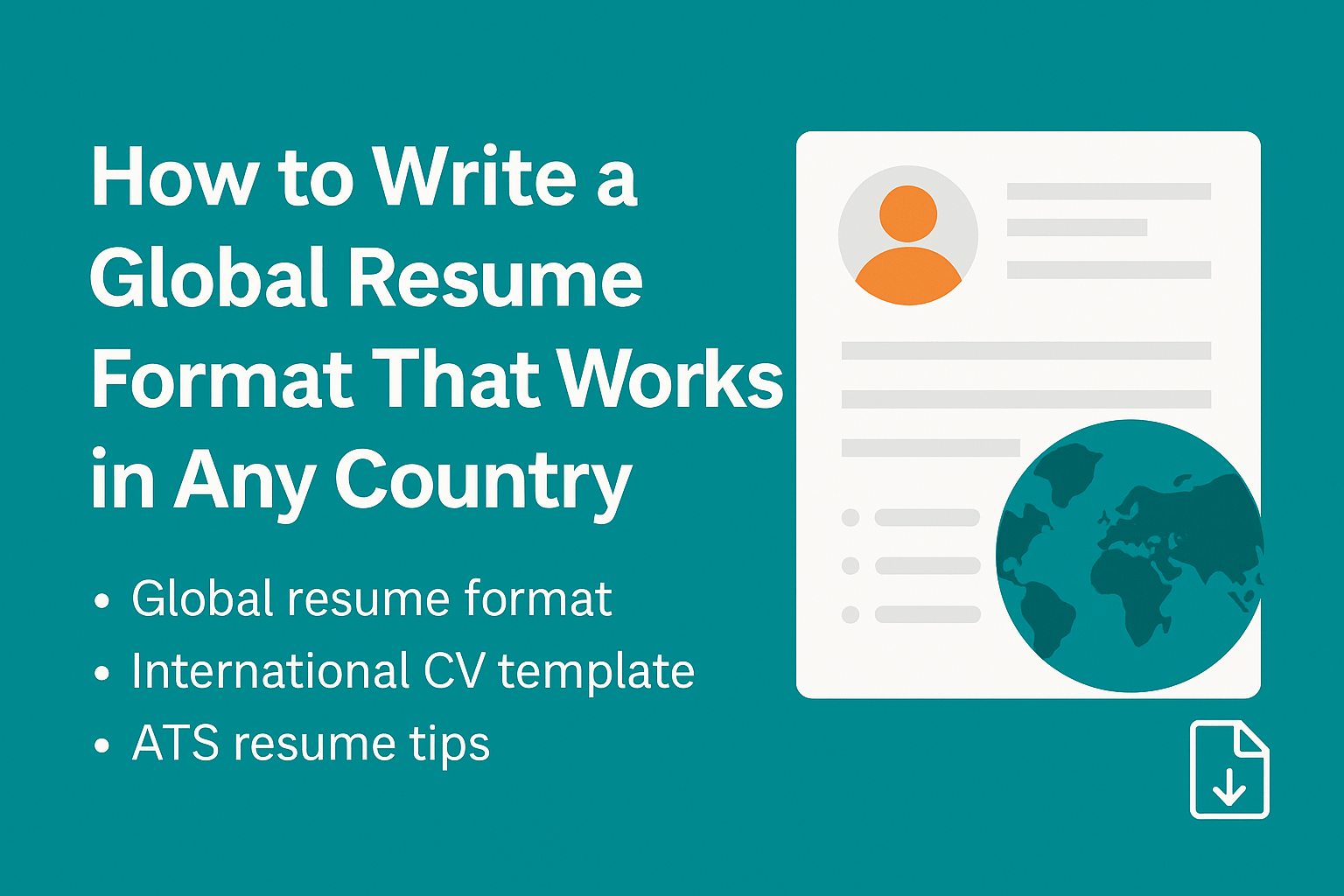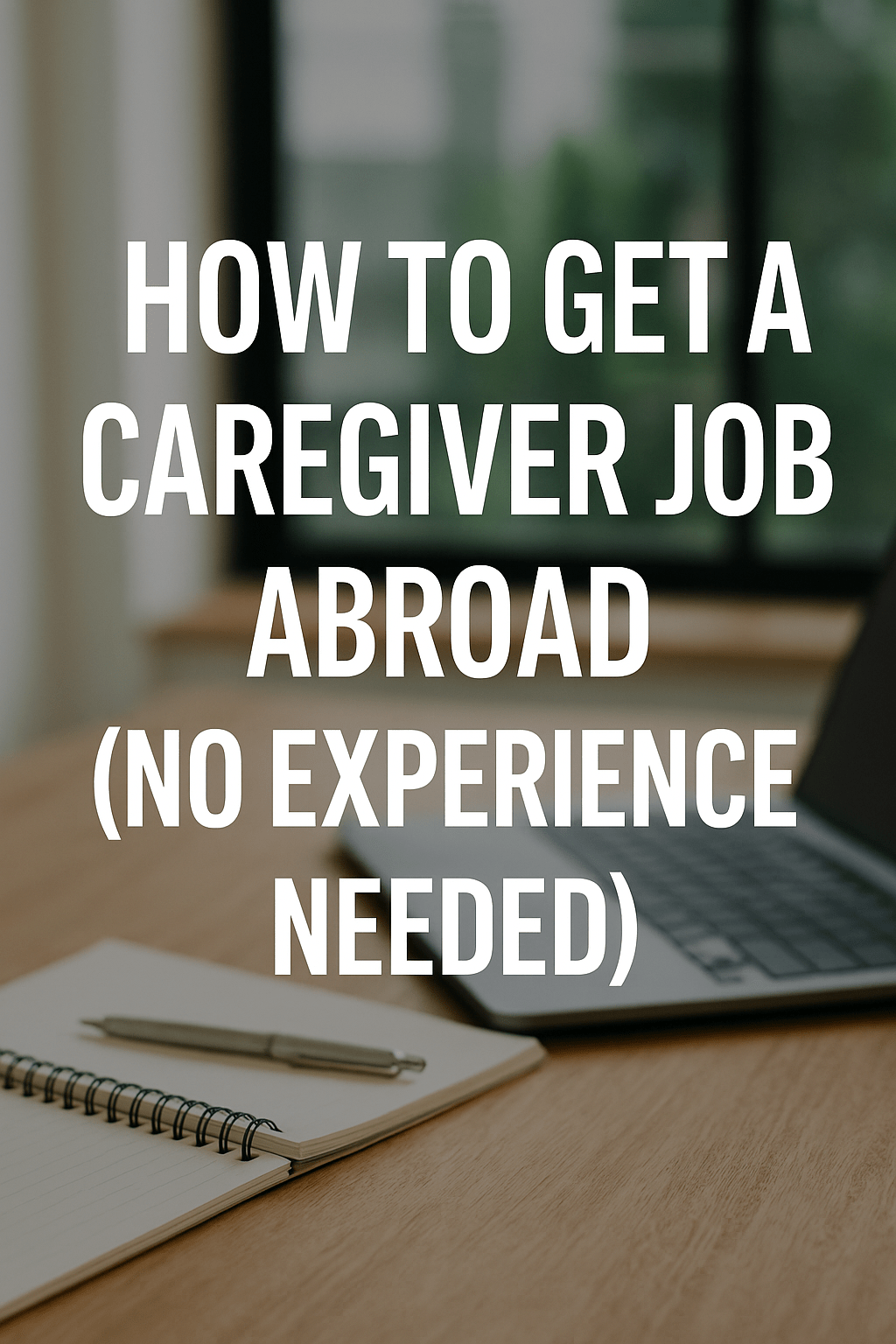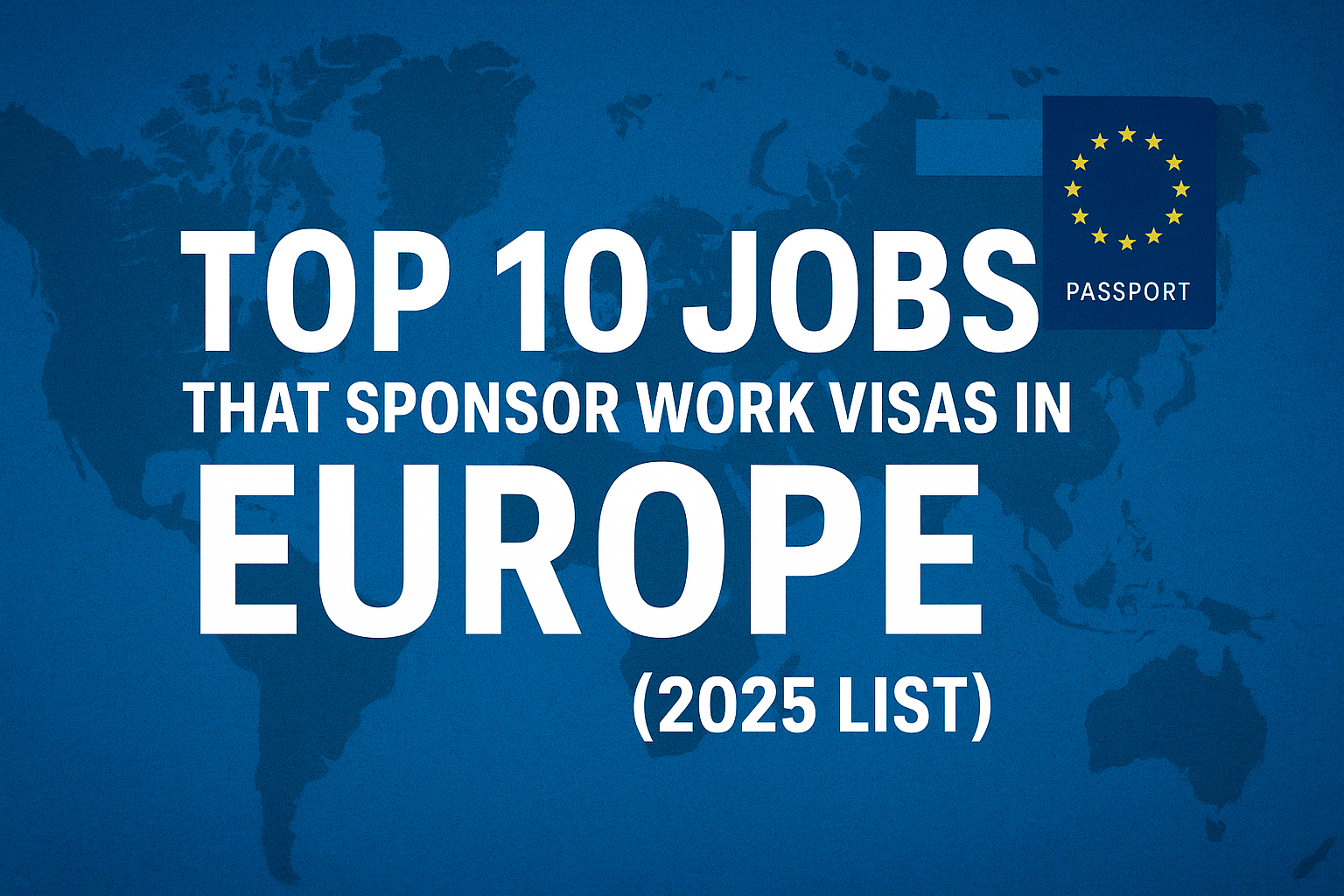Work in Germany Without a Degree – Top Jobs for Foreigners
Introduction
Looking to work in Germany without a degree? You’re in the right place. For many foreigners, moving to Germany without academic credentials can feel like a challenge—but it’s absolutely doable. The country offers a wide range of roles that don’t require a university degree—think construction, hospitality, logistics, driving, caregiving, and more. With labor shortages hitting key sectors, your non-degree skills can land you impressive opportunities. In this guide, I’ll walk you through top jobs, visa procedures, application advice, and even German language strategy to help you succeed.
Why You Can Work in Germany Without a Degree
Labor Shortages & Priority Review Visas
Germany has a big labor gap in roles that don’t require degrees—like warehouse staff, cleaners, construction helpers, caregivers, farmhands, and drivers . Because of this, they offer a “priority review” work visa, especially popular for citizens of the U.S., Canada, UK, Australia, New Zealand, Israel, Japan, South Korea, and a few others reddit.com. If a German employer shows nobody in the EU can fill the job, you’re in.
Vorrangprüfung (Priority-Check)
This is essential: your prospective job must pass the Bundesagentur für Arbeit’s test proving no EU jobseeker is available en.wikipedia.org+8reddit.com+8reddit.com+8. Once that’s cleared, you can apply for a standard work permit—even without a degree.
Top Jobs Available Without a Degree in Germany
Here are practical options that employers consistently advertise—and you can enter them without a degree.
1. Construction Laborer & Site Assistant
- Roles: Tool-handling, loading materials, prepping sites
- Hourly wage: €10–€15 reddit.com+6reddit.com+6reddit.com+6daadscholarship.org+2relocatemeabroad.com+2visajobspk.com+2
- Video: one American shared success moving as a construction or warehouse worker reddit.com+9reddit.com+9reddit.com+9
- Requirements: Physical fitness, willingness to work flexible hours, some German is a plus
2. Warehouse & Logistics Worker
- Tasks: Forklift driving, packing, stock → €9–€13/hour or €1,800–€2,200/month visajobspk.com+1reddit.com+1en.wikipedia.org+7relocatemeabroad.com+7drasmajabeen.com+7
- Requirements: Sometimes forklift license; physically fit; German/English basics
3. Cleaner / Janitor / Housekeeper
- Pay: €8–€12/hour relocatemeabroad.com
- Places: Hotels, hospitals, offices, private homes
- Requirements: Reliable, detail-oriented, basic German helps
4. Kitchen Helper / Dishwasher
- Pay: €9–€13/hour petersjobs.com
- A great entry-level role; experience boosts chances
5. Delivery Driver / Commercial Driver
- Pay: €10–€15/hour; truckers can earn €40k+ annually feedbegin.com
- Requirements: Commercial license (C or D), clean driving history
6. Gardener / Landscaper
- Pay: €9–€14/hour en.wikipedia.org+8relocatemeabroad.com+8drasmajabeen.com+8
- Skills: Basic horticulture, physical stamina
7. Caregiver for Elderly / Nanny
- Pay: €9–€13/hour visajobspk.com+2relocatemeabroad.com+2drasmajabeen.com+2
- Requirements: Empathy, reliability, German helpful
8. Security Personnel
- Pay: ~€36k/year visajobspk.com
- Many positions require licensure, not degrees
9. Real Estate Agent
- Pay: €50k+ salary/commission reddit.com+1reddit.com+1fexmy.co
- Requirements: License, German fluency; no degree needed
10. Truck & Bus Driver
- Salaries: Truck: ~€40k+; Bus: ~€35k/year
- Requirements: Appropriate license, vocational training/apprenticeship
Vocational Training & Certification — Ausbildungen
While a degree isn’t mandatory, many of these roles benefit hugely from Germany’s Ausbildung (vocational training)—a 2–3 year mix of classroom and on‑the‑job learning thefasthire.org. These officially recognized programs make you eligible for skilled-worker visas and give you a competitive edge—especially in trades like electrician, plumber, mechatronics technician, or machinist.
Visa Tips: Applying to Work in Germany Without a Degree
Step 1: Get a Job Offer & Employer Agreement
Send CVs via job portals (Indeed DE, Monster DE, LinkedIn), staffing agencies, or direct outreach. Once you’ve got a concrete offer, your employer applies for Vorrangprüfung.
Step 2: Priority-Review Work Visa
If the German labor agency confirms no EU worker fits the role, your employer forwards confirmation to you. You then apply at the German embassy/consulate in your home country. If you’re from a priority-country, processing is faster .
Documents needed:
- Signed work contract/job offer
- Passport (≥ 6 months validity)
- Proof health insurance
- CV + references
- Photo + birth certificate + rental agreement in Germany too, if already arranged reddit.com+15reddit.com+15travels.canadasift.com+15
Step 3: Land in Germany & Anmeldung
Upon arrival, register your address (Anmeldung), and finalize your residence/work permit. Apply for health insurance and open a bank account.
Step 4: Legal Protections
You’ll automatically get German labor protections: health insurance, minimum 4 weeks vacation, paid sick leave, pension contributions, etc. reddit.com
Smart Application Tips
- Polish your CV in European format, include photo, concise bullet points, tailor for each role.
- Learn basic German: A1–B1 boosts job prospects dramatically—start before applying.
- Mention physically demanding roles if applicable: construction, warehouse, cleaning.
- Highlight transferable skills: punctuality, teamwork, adaptability.
- Network through Facebook expat groups, recruiters, job fairs—sometimes word-of-mouth wins.
- Prepare for interviews to talk about reliability, physical endurance, your motivation.
Things to Keep in Mind
Cost of Living vs Wages
Berlin, Hamburg, Munich have higher rent—but average wages for non-degree work (€1,800–€2,200/month) can still offer a modest but stable lifestyle feedbegin.com+1expatrist.com+1drasmajabeen.com.
German Language Advantage
Basic German is a plus for almost all unskilled jobs—even A2 opens more opportunities.
Long-Term Mobility
Even without a degree, you can later pursue an apprenticeship, gain experience, switch to a skilled permit, and eventually apply for permanent residency after 5 years reddit.com.
Fuse It All Together – A Sample Application Timeline
| Timeline | Task |
|---|---|
| Months –3 to –2 before relocating | Learn German basics (A1–A2), tailor CV/resume |
| Month –2 to –1 | Apply for jobs via portals and agencies |
| 3–6 weeks later | Job offer + Vorrangprüfung starts |
| 1–2 months later | Submit visa application at German consulate |
| Week 4–8 after visa | Get visa approval and fly to Germany |
| Within week 1 in Germany | Register address, get health insurance, open bank account |
| Month 1+ | Start job, complete probation, integrate into German life |
Key Takeaways
- “Work in Germany without a degree” is 100% possible—especially in unskilled or vocational roles.
- Germany’s priority-review visa system is tailor-made for this.
- Main roles include construction, warehouse, driving, caregiving, cleaning, security, and real estate.
- Apprenticeships (Ausbildungen) can significantly boost job eligibility.
- Learn German, polish your application, and follow the onboarding process precisely.
Ready to Make the Move?
No degree? No problem. Germany offers a strong, fair path to a productive life through stable, protected employment. Start with basic German, optimize your CV, commit to physical roles, and leverage the priority-review visa system—and you’ll be on your way to living and working in Germany.






1 COMMENTS
Comments are closed.